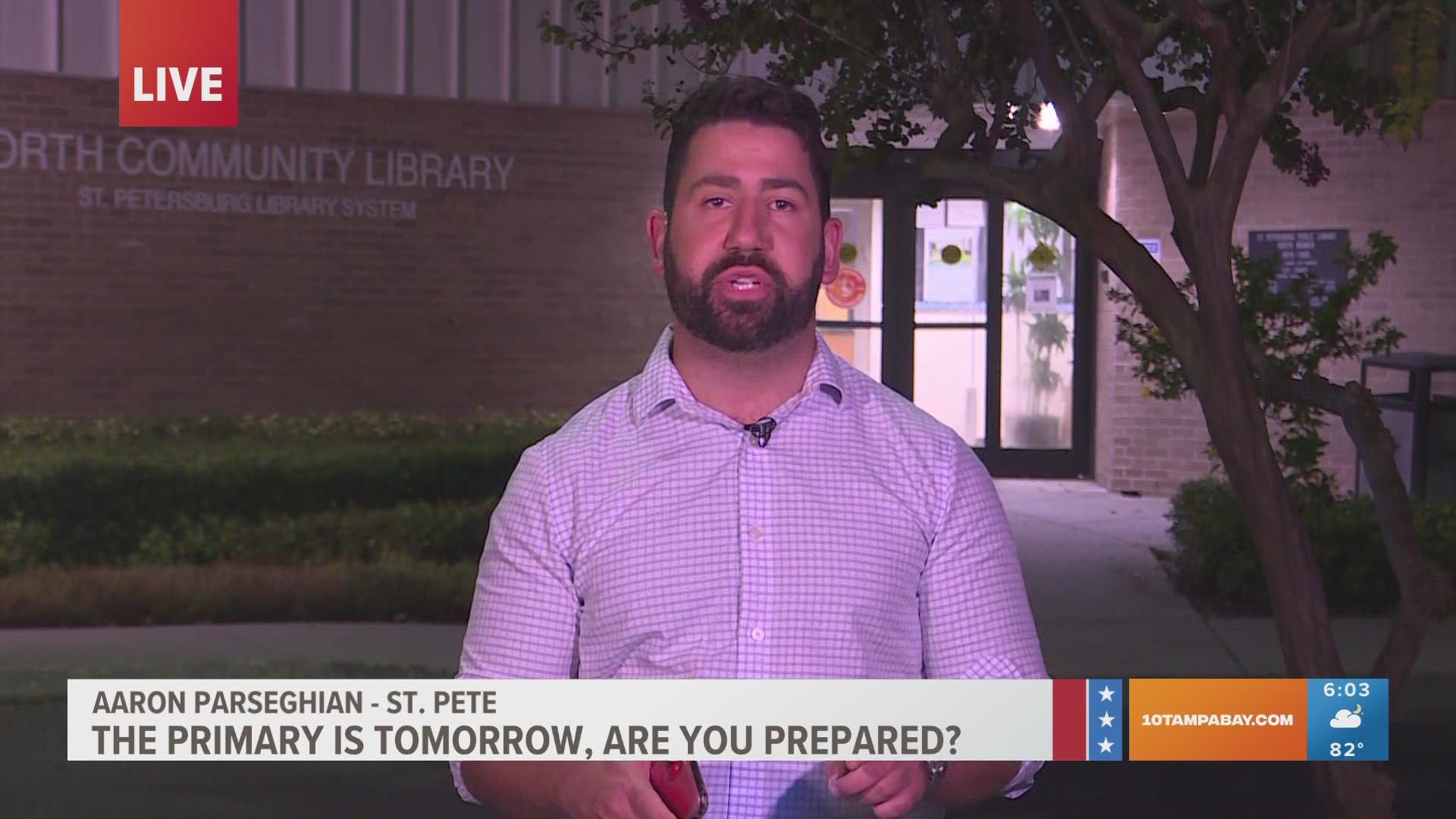ST. PETERSBURG, Fla. — The deadline for Florida voters to cast their ballot in the primary election is 7 p.m. on Aug. 23.
If you've already voted, either through early voting or a vote-by-mail ballot, you may be wondering why you're only seeing candidates for your affiliated party.
And, if you're new to the Sunshine State and you walk into the voting booth to see this, you may be wondering: "Why can't I vote for the opposite party in the primary election?"
Or, if you're an independent, why are you only seeing a handful of races on your ballot?
It's because Florida is what is known as a "closed primary" state.
So, what does that mean for you and your vote during the primary?
According to the Florida Division of Elections, a closed primary election means only voters registered in political parties can vote for their respective party candidates or nominees.
So, if you're a registered Republican, you can only see and vote for Republican candidates running. This is the same if you're a Democrat; you'll only see Democratic candidates and the races they're in.
If you're an Independent or not registered with a particular political party, you can still vote in the primary election, but you're not going to see every race.
Instead, what will happen is you'll see races where all the candidates have the same party affiliation, or if the winner won't face any opposition in the general election. If that happens, all registered voters will see this race on their ballots, regardless of political affiliation.
All voters will also see all races for nonpartisan judicial and school board offices, nonpartisan special districts, or local referendum questions that are on the primary election ballot.
These restrictions in the closed primary election don't apply to the general election on Nov. 8. All registered voters will get the same ballot and can vote for any candidate or question on the ballot. And, if there happens to be a qualifying write-in candidate, a spot will be left on the ballot for voters to put their name down.
The primary election is held to nominate party candidates to be voted for in the general election (on Nov. 8) to fill a national, state, county or district office. They are also used to choose convention delegates and party leaders.
The offices that will be voted on to nominate candidates are:
- State executive offices (governor, lieutenant governor, attorney general, chief financial officer and agriculture commissioner)
- United States senators
- United States representatives
- State legislators
- Local offices (varies by municipality)

